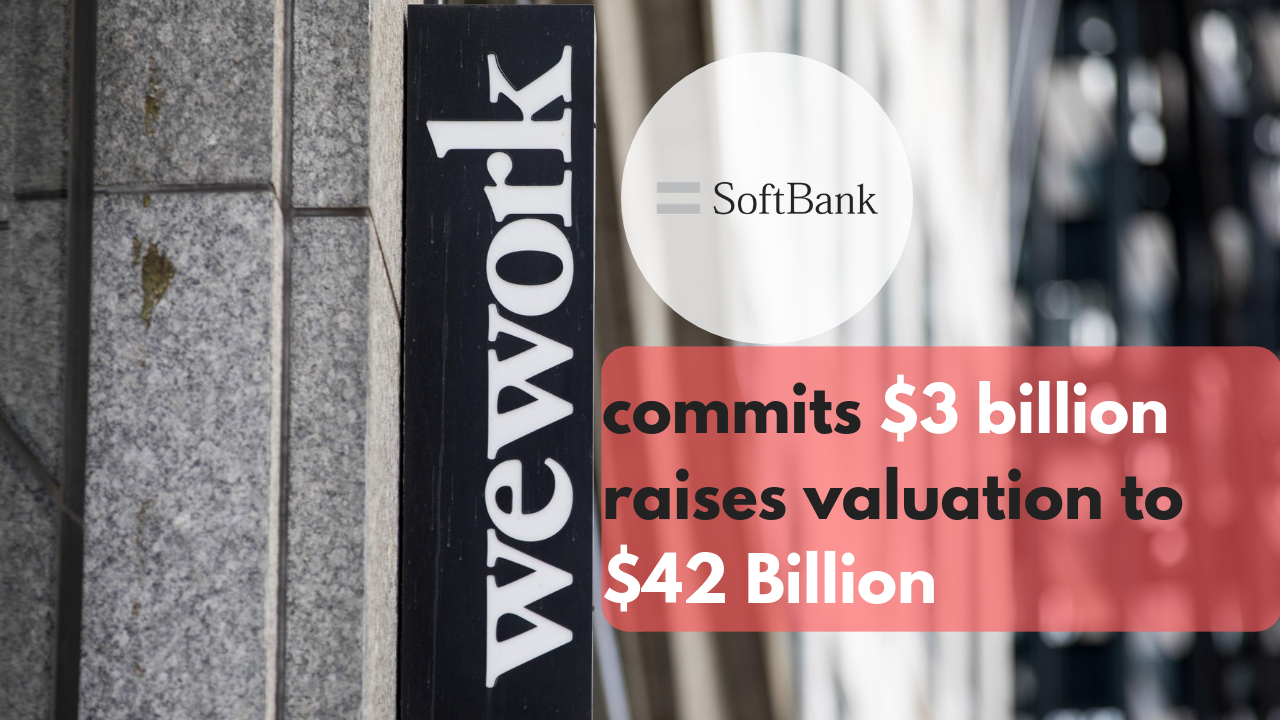- WeWork’s valuation has risen to $42 billion following a further $3 billion investment from SoftBank
- Under a new warrant agreement, SoftBank will send the payment in two equal installments in January and April 2019
- WeWork has grown exponentially over the past couple of years, however it has yet to declare a profit
Several news sources reported yesterday that SoftBank has committed an additional $3 billion to WeWork. The money comes in as a warrant that will give SoftBank the opportunity to buy shares at $110 a share or higher before September of 2019.
According to Bloomberg, the new influx of capital lifts WeWork’s valuation to at least $42 billion. The $3 billion came from SoftBank itself, rather than its Vision Fund, which invested $4.4 billion in WeWork last year.
The Financial Times reported that “under the new warrant agreement with WeWork, SoftBank will pay the serviced office provider $1.5bn on January 15, 2019 and another $1.5bn on April 15.”
The news comes shortly after rumors that SoftBank was considering taking a majority stake in WeWork.
WeWork has grown exponentially over the past couple of years, however it has yet to declare a profit. According to the Financial Times, “revenues in the third quarter doubled from $241.1m to $482.3m, bringing total revenues for 12 months to September to $1.5bn. However, The New York Times reported that “the company also disclosed Tuesday that it lost $1.22 billion through the first nine months of this year after losing $933 million in 2017.”
Earlier this year, WeWork had to resort to selling debt to investors in the form of “junk bonds” in order to remain cash positive and continue to fuel its growth.
According to the Wall Street Journal “one of the biggest areas of increased spending was in sales and marketing, which totaled $244 million in the first nine months. That was nearly triple year-earlier spending of $84 million — which itself was triple the amount in the same period in 2016.”
Earlier this year, WeWork was offering up to 100% commission to brokers that brought in clients from the competition and it was also offering a 50% discount on a one-year lease.
WeWork’s focus and growth has gone beyond the realm of the flexible workspace industry; the coworking giant has been diversifying, moving away from its core business model. The company opened a kindergarten and a coding academy, and launched a brokerage service for medium sized businesses, among others. The company also launched a fitness and co-living brand; the latter hasn’t grown since 2016.
WeWork’s thirst for capital hasn’t slowed down since early 2016, and the company has big plans for its future. Nonetheless, experts remain skeptical of WeWork’s ability to sustain a downturn.
WeWork remains a private company despite rumors earlier this year that it might issue an IPO. The company’s ability to quickly raise capital or debt means it doesn’t yet need to go to the public market to fund its aggressive growth.















